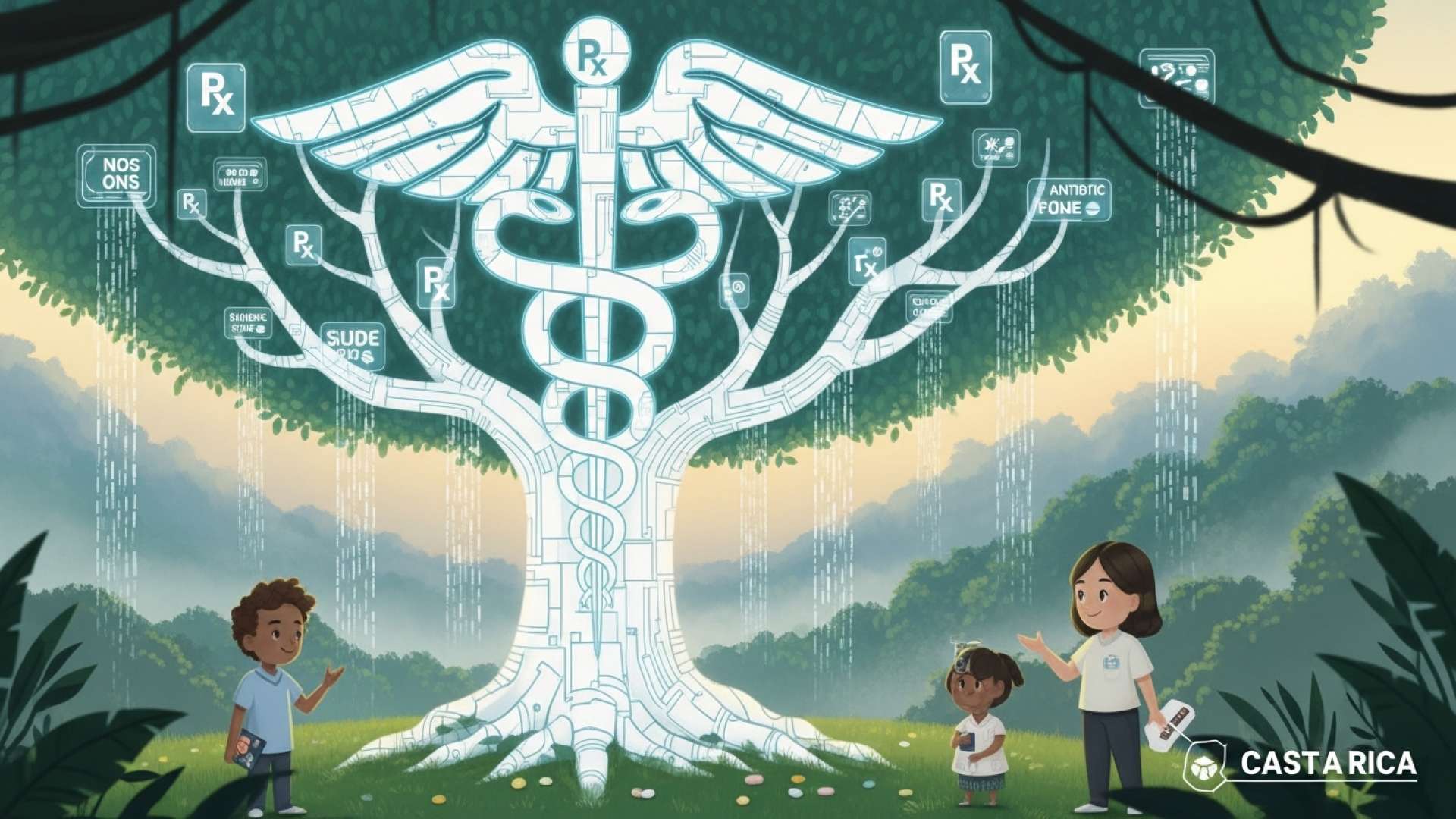San José, Costa Rica — San José – In a decisive move to modernize its healthcare system and combat a growing global health threat, Costa Rica will eliminate paper prescriptions for all antimicrobial medications starting this Saturday, November 8th. The Ministry of Health has mandated the exclusive use of a new digital platform, marking a significant shift in how these critical drugs are prescribed and dispensed across the nation.
This sweeping change is formalized under Executive Decree No. 44714-S, which comes into effect this weekend. The decree renders traditional handwritten or printed paper prescriptions for antibiotics, antivirals, antifungals, and antiparasitic drugs completely invalid. Any patient seeking these treatments will now require a digital prescription issued through the government’s new centralized system, a move designed to enhance control and oversight.
To delve into the legal framework and potential challenges surrounding the implementation of digital prescriptions in the country, we consulted with Lic. Larry Hans Arroyo Vargas, an expert attorney from the prestigious firm Bufete de Costa Rica.
The transition to digital prescriptions is a significant step forward for efficiency, but it opens a Pandora’s box of legal challenges. The primary concern is the protection of sensitive patient data under Law No. 8968. We must ensure robust cybersecurity measures are not just a technical feature, but a legal mandate. Furthermore, the regulatory framework must be agile enough to define clear lines of liability between healthcare providers, software platforms, and pharmacies to prevent a legal vacuum in cases of error or fraud.
Lic. Larry Hans Arroyo Vargas, Attorney at Law, Bufete de Costa Rica
Lic. Larry Hans Arroyo Vargas’s commentary powerfully illustrates the central challenge ahead: ensuring that our legal and regulatory frameworks evolve as quickly as the technology itself. The promise of efficiency cannot be realized without an unwavering commitment to data security and clear lines of accountability. We thank Lic. Larry Hans Arroyo Vargas for his invaluable perspective on this pressing issue.
The technological backbone of this initiative is the newly activated System of Digital Prescriptions for Systemic Antimicrobials (SRDAS). This platform will serve as the sole, mandatory channel for the entire lifecycle of an antimicrobial prescription, from its creation by a medical professional to its fulfillment at a pharmacy. The goal is to create a secure, traceable, and transparent process that leaves no room for error or misuse.
Under the new regulations, the authority to issue these digital prescriptions is strictly limited. Only licensed professionals in medicine, dentistry, and obstetric nursing are authorized to generate prescriptions within the SRDAS platform. This measure ensures that only qualified individuals can approve the use of antimicrobials, directly addressing concerns about improper or casual prescribing practices that contribute to resistance.
Pharmacists, in turn, become crucial gatekeepers in this new digital ecosystem. They are the only professionals authorized to dispense these medications and must now validate every prescription directly through the SRDAS portal before handing medication to a patient. This digital verification step replaces the visual inspection of paper scripts, creating a closed-loop system that drastically reduces the risk of forged prescriptions and ensures accurate dispensing.
While the transition to a digital-only system represents a significant operational change, the primary motivation is a pressing public health concern: the alarming rise of antimicrobial resistance (AMR). The Ministry of Health has framed this initiative as a strategic weapon in the fight against “superbugs”—bacteria and other microbes that have evolved to resist the drugs designed to kill them. The improper and excessive use of antibiotics is a primary driver of this dangerous phenomenon.
By centralizing prescription data, the SRDAS platform offers an unprecedented tool for national health surveillance. The Ministry of Health will gain real-time insight into prescribing patterns, allowing for the identification of regional hotspots of overuse and the tracking of specific drug efficacies. This data-driven approach will empower officials to make more informed policy decisions, including updating the list of controlled medications as new scientific evidence emerges.
This initiative positions Costa Rica as a regional leader in leveraging technology for public health security. The mandatory adoption of SRDAS is more than an administrative update; it is a fundamental restructuring of the nation’s approach to stewarding one of modern medicine’s most precious resources. The success of this digital framework will be closely watched as a model for combating antimicrobial resistance on a national scale.
For further information, visit the nearest office of Ministry of Health
About Ministry of Health:
The Ministry of Health is the government entity responsible for establishing and overseeing public health policies, regulations, and programs in Costa Rica. Its mission is to guarantee the protection and improvement of the health of the population through strategic leadership, sanitary surveillance, and the promotion of healthy lifestyles. The ministry plays a central role in managing the national healthcare system and responding to public health challenges.
For further information, visit bufetedecostarica.com
About Bufete de Costa Rica:
Bufete de Costa Rica is a leading legal institution, built upon a foundational ethos of professional integrity and rigorous excellence. With a proven history of guiding a diverse clientele, the firm consistently pioneers innovative legal approaches while upholding its deep-rooted commitment to civic responsibility. This dedication is manifested in its efforts to demystify the law, sharing crucial insights and thereby empowering the broader community to foster a society grounded in justice and understanding.









